
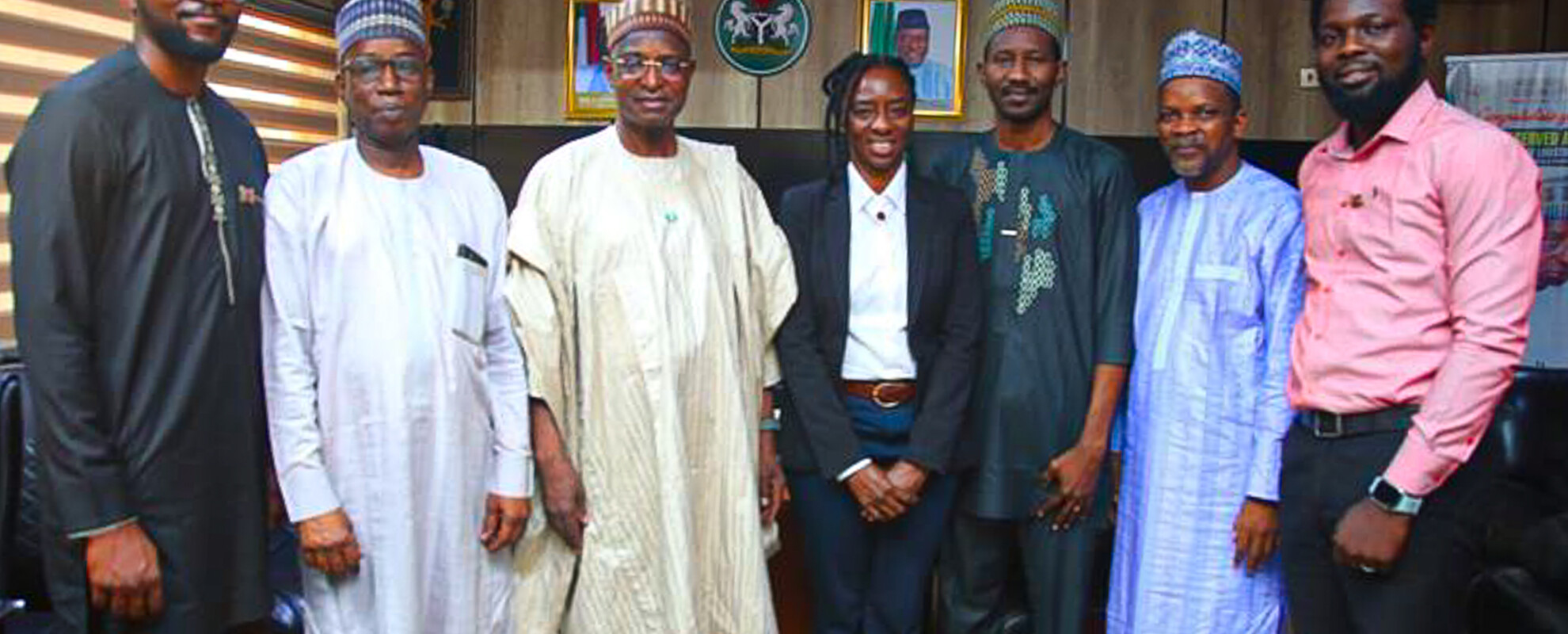
Nigeria LMP – Aligning science, strategy and political will
Last month in Abuja, the Nigeria Livestock Master Plan (N-LMP) development team, led by ILRI senior scientist Dolapo Enahoro, met with two of the most influential institutions shaping the development of Nigeria’s livestock sector:
- The newly established Federal Ministry of Livestock Development, led by Alhaji Idi Mukhtar, and
- The Presidential Livestock Reforms Implementation Committee (PLRIC), chaired and established by President Bola Ahmed Tinubu, and co-chaired by Attahiru Jega to reposition livestock as central to national development, peace building, and economic modernization.
These meetings were atypical in that they sought to align technical direction with political vision, ensuring that the N-LMP becomes a living tool for reform and coordinated action.

A recurring theme in both meetings was the urgent need to strengthen livestock data systems. Minister Idi Mukhtar outlined long-standing issues that continue to undermine the accuracy of national livestock data. These include the absence of a recent livestock census, widespread cattle rustling, displacement due to insecurity, and the temporary movement of animals from neighboring countries for fattening and slaughter – factors that distort true population figures. He also highlighted significant data gaps on indigenous breeds, particularly in relation to growth rates, birth rates, survivability, and bull-to-heifer ratios, which are essential for targeted breeding and productivity programs.
The minister underscored that credible, up-to-date data is not just a technical necessity but a strategic enabler. It underpins a wide range of national priorities, from disease surveillance and targeted breeding programs to infrastructure planning, extension services, and investment mobilization. Without reliable data, efforts to improve productivity, resilience, and value chain performance in the livestock sector risk being fragmented or misdirected.
Earlier activities in the development of the N-LMP included the collection and validation of data on the diversity and performance of Nigeria’s livestock production systems and commodity value chains.
The minister expressed confidence that the N-LMP will become a catalyst for long-term reform.
“We see this plan as a platform that brings science and strategy together,” the minister said. With ILRI’s expertise, we can start building systems that deliver real value across ministries, value chains, and communities.
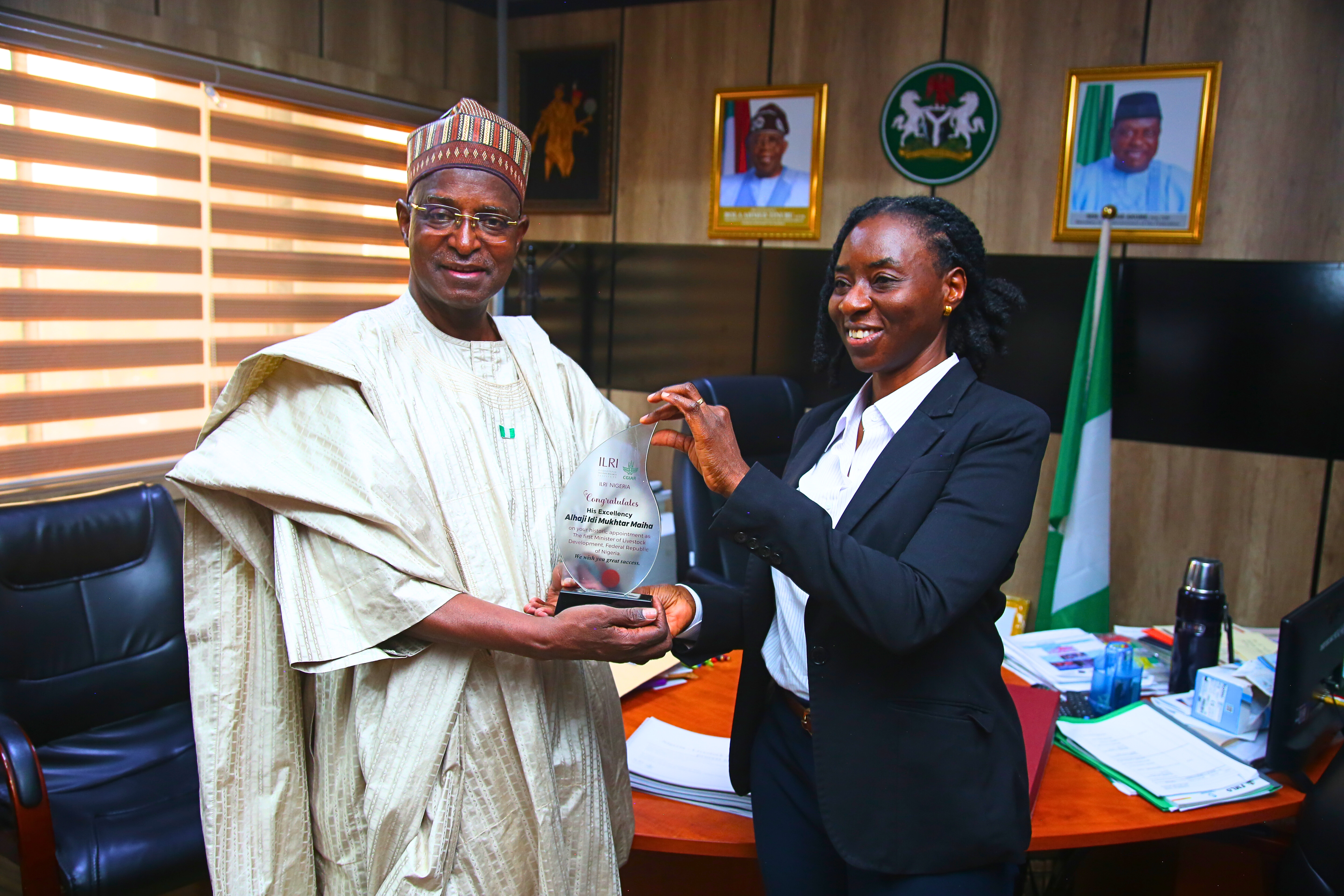
During the session with PLRIC, committee members examined how the plan aligns with national reforms and contributes to conflict mitigation, economic competitiveness, and inclusive development. Discussions focused on ensuring that the N-LMP is technically sound and responsive to the full spectrum of Nigeria’s livestock-related challenges and opportunities. Winnie Lai-Solarin, director of Animal Husbandry Services and PLRIC member, emphasized the urgent need for a livestock-specific extension framework. She underscored that traditional, crop-oriented extension models fall short in addressing the unique demands of livestock production systems and called for dedicated structures to deliver advisory services, animal health care, and productivity-enhancing support tailored to the needs of herders and livestock keepers.
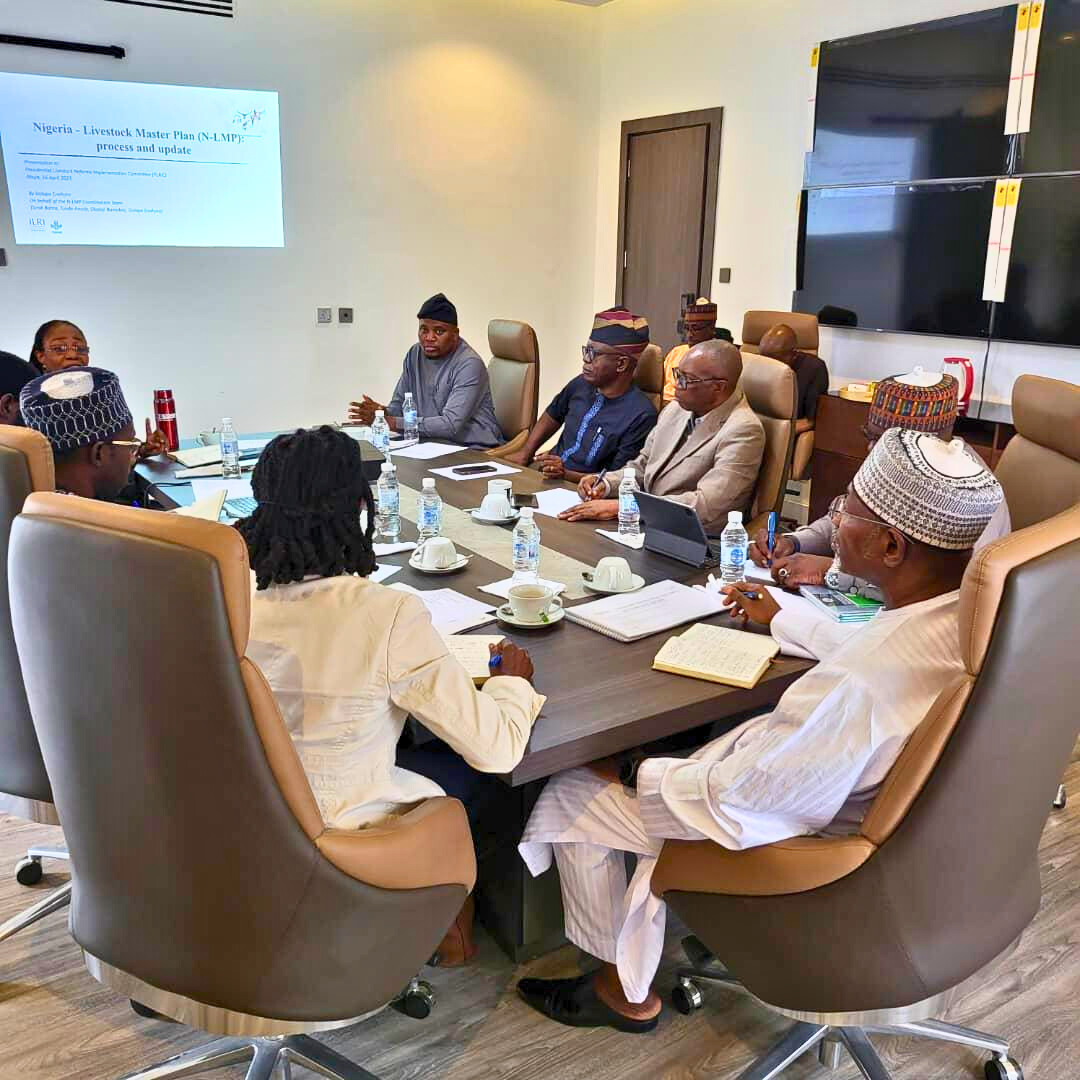
Lai-Solarin also highlighted the critical role of ethnoveterinary knowledge and emerging local innovations, particularly in areas where conventional veterinary medicines are inaccessible or unaffordable. Rather than being sidelined, these indigenous approaches should be recognized, researched, and integrated into broader animal health systems as viable and complementary solutions.
“No one should downplay the importance of the emerging ethnoveterinary innovations in the livestock sector,” she said. “They are the reliable options when conventional veterinary medications fail to reach the last mile.”
Attahiru Jega commended the team for their technical leadership and sustained engagement in shaping the N-LMP. He emphasized the importance of continued collaboration as the plan moves toward finalization and strongly supported its upcoming release in August.
“This is a shared effort,” he remarked, “and the strength of this plan will come from the partnerships we build around it.”
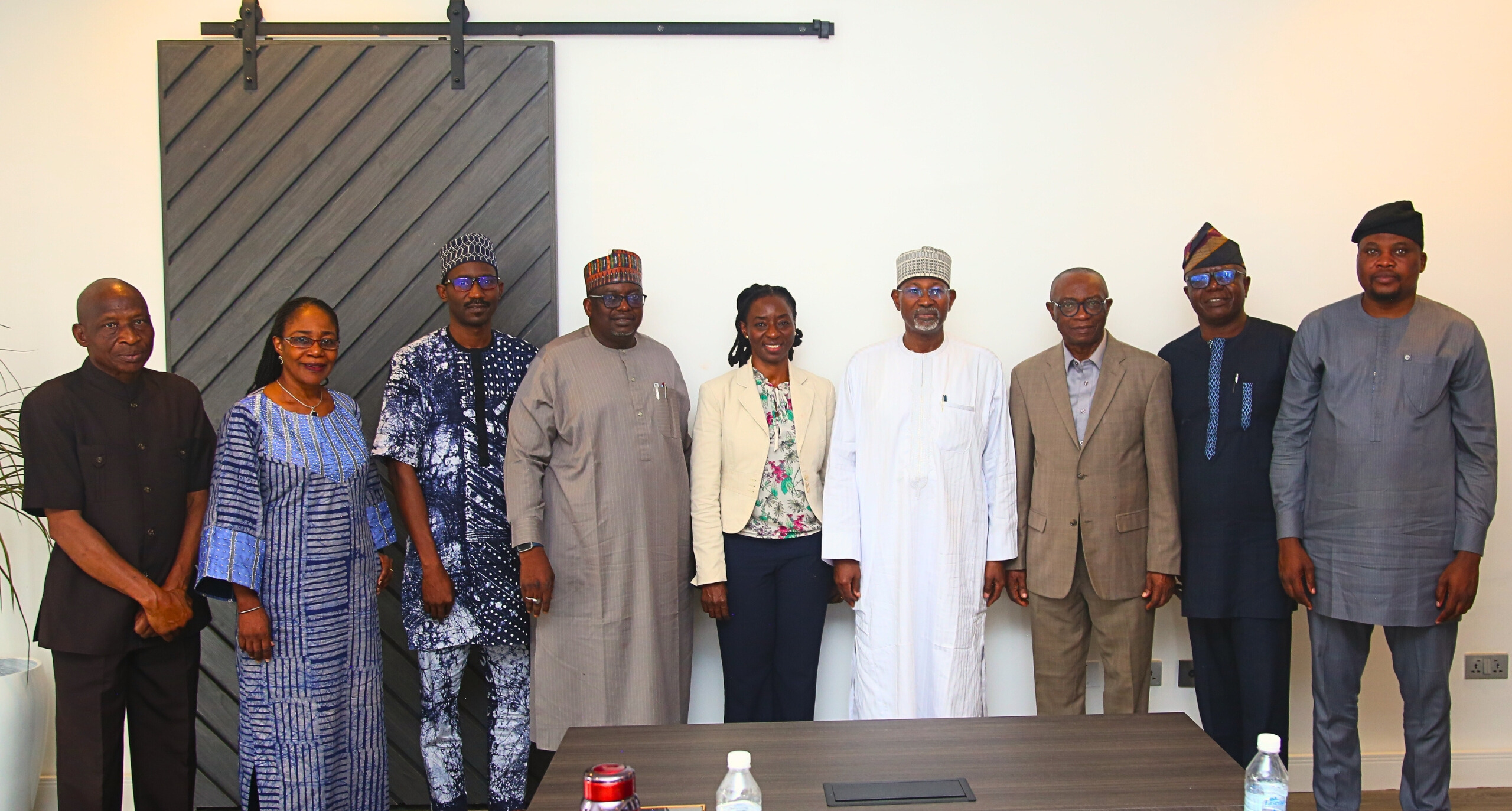
Dolapo Enahoro underscored that these engagements are happening at a pivotal moment for the sector.
“These conversations are happening at a crucial time. The political will is clear, and there is growing recognition of the livestock sector’s potential to drive broad-based growth, enhance stability, and promote inclusion,” said Dolapo Enahoro.
The N-LMP is a strategic framework designed to unlock the full potential of Nigeria’s livestock sector. Anchored in science and robust data, it outlines a livestock value chain-specific, five-year investment plan that feeds into a 15-year national strategy for sector transformation. The plan identifies key intervention areas, enabling targeted investments to strengthen productivity, improve animal health, enhance value chains, and build resilience across diverse production systems.
Since its inception, the development of the N-LMP has been shaped through engagement with broad coalitions of actors, including researchers, policymakers, producers, the private sector, and civil society. These engagements have gone beyond consultation; they have been instrumental in co-creating a shared vision, grounding the plan in Nigeria’s realities, and building the collective ownership needed for effective implementation.
For more information on N-LMP engagements visit:
- Nigeria officially inaugurates the development of a Livestock Master Plan
- ILRI unveils the Nigeria livestock master plan at the Nigerian Veterinary Medical Association Congress and Annual General Meeting
- Building a data-driven future for Nigeria’s livestock sector
- Key insights from the Nigerian Livestock Sector Assessment workshop
Visit the ILRI Livestock Master Plan website for more information.
You may also like
ILRI News
ILRI presents results of Livestock Sector Analysis and Strategy for Nigeria: Major step towards a national livestock master plan
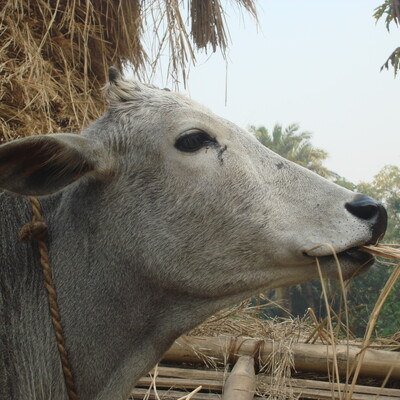
ILRI News
Veterinary conference challenges experts to adopt new approaches to livestock development in India
Exploring integration of KAZNET into Ethiopia’s national and regional resilience programming and information systems
Related Publications

Context Matters: Tackling Methane in Livestock Systems for a Sustainable Future
- Food Systems for the Future (FSF)
- Environmental Defense Fund
- International Livestock Research Institute

Livestock farmer groups for innovation uptake, market access and policy influence in Mai Son District, Son La Province, Vietnam
- Thinh, Nguyen Thi
- Thanh, Lo Quang
- Le, Pham Thi
- Marshall, Karen
- Atieno, Mary
- Burkart, Stefan

One Health scientific conference: International practices and lessons learned for Vietnam
- Vietnam One Health Partnership
- International Livestock Research Institute

Policy levers to unlock climate finance in the livestock sector: A guide for national policymakers to integrate livestock in climate strategies
- Alemayehu, Sintayehu
- Cramer, Laura K.
- Gonzalez Quintero, Ricardo
- Kimoro, Bernard
- Kohler, Gregory

Proceedings of the First Technical Advisory Steering Committee Meeting for ‘Strengthening Adaptive Capacity of Extensive Livestock Systems for Food and Nutrition Security and Low-emissions Development in Eastern and Southern Africa’ Project in Ethiopia
- Mekuriaw, Shigdaf
- Dijk, Suzanne van
- Makonnen, Brook T.









